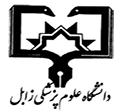(2020) The ability of GCS, FOUR, and APACHE II in predicting the outcome of patients with traumatic brain injury: A comparative study. Biomedical Research and Therapy. pp. 3614-3621. ISSN 2198-4093
Full text not available from this repository.
Abstract
Introduction: Assessment of the neurological condition of patients admitted to intensive care units gives healthcare professionals the necessary knowledge to attempt to improve their condition and final outcome. Such an assessment cannot be done without a highly reliable and accurate instrument. This study aimed to compare the ability of GCS and FOUR scales to assess the level of consciousness and dysfunction in patients with traumatic brain injury. Methods: This descriptive cross-sectional study was conducted on 102 patients with traumatic brain injury who were found by convenience sampling. The condition of patients during hospitalization up until determination of the final outcome was assessed using GCS, FOUR, Karnofsky, and APACHE-II scales. In the end, the ability of these scales to predict outcome and dysfunction of these patients, and their correlation in this application, was measured using one-way ANOVA and the Pearson correlation test. Results: Of the 102 patients, 80 (78.4) were male, and 22 (21.6) were female. The mean age of patients was 32.2 +/- 14.8. There was a significant correlation between the results of FOUR and GCS in the assessment of the patients' consciousness level (r = 0.925), which was statistically significant (p = 0.0001). The mean scores of FOUR, GCS, and Karnofsky scales were significantly higher in survivors and in patients with neurological deficits than in non-surviving patients. The patients who died also had a significantly higher APACHE-II score than those who did not. FOUR and GCS showed a strong positive correlation in the assessment of outcomes, and both of them also exhibited a high correlation with APACHE II in this respect. Conclusion: GCS and FOUR are both suitable scales for assessing consciousness level and outcome of patients with traumatic brain injury.
| Item Type: | Article |
|---|---|
| Keywords: | FOUR Glasgow Coma Scale APACHE II Traumatic Brain Injury Karnofsky scale Intensive care unit glasgow coma scale intensive-care-unit impaired consciousness full outline score reliability mortality Research & Experimental Medicine |
| Divisions: | |
| Page Range: | pp. 3614-3621 |
| Journal or Publication Title: | Biomedical Research and Therapy |
| Volume: | 7 |
| Number: | 2 |
| Identification Number: | 10.15419/bmrat.v7i2.588 |
| ISSN: | 2198-4093 |
| Depositing User: | مهندس مهدی شریفی |
| URI: | http://eprints.zbmu.ac.ir/id/eprint/3544 |
Actions (login required)
 |
View Item |



